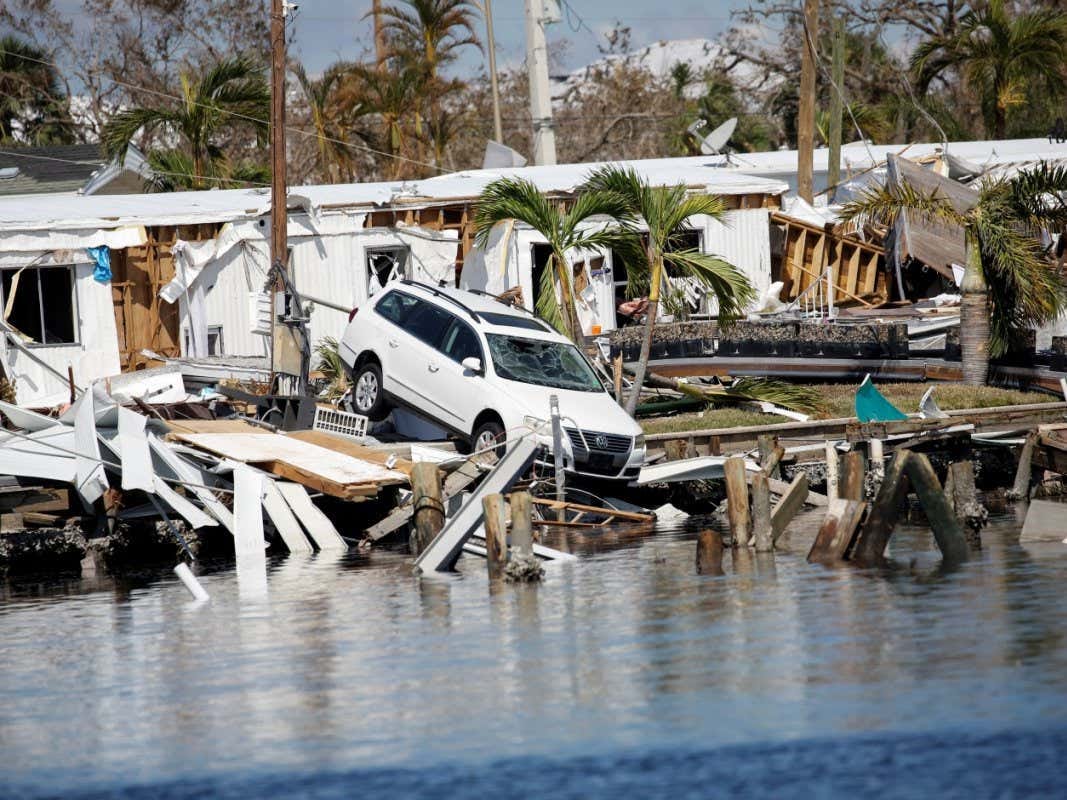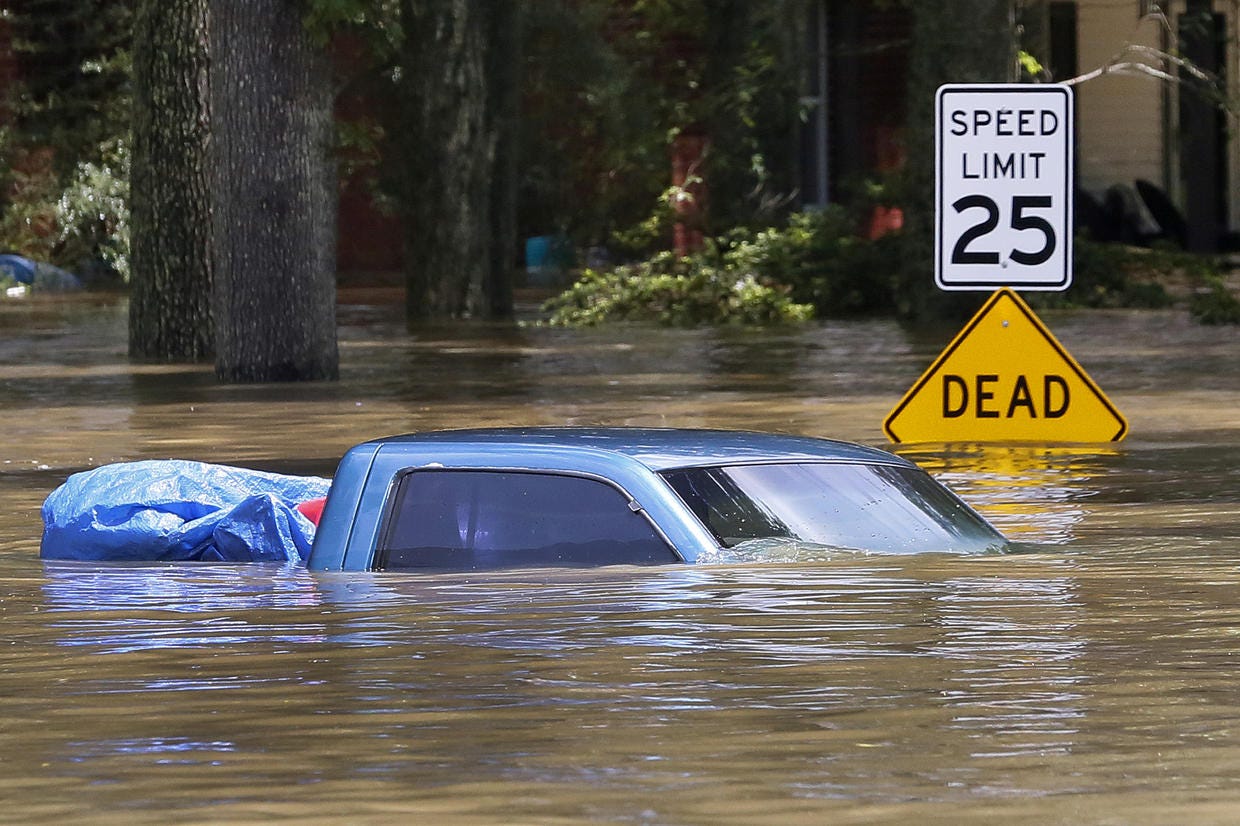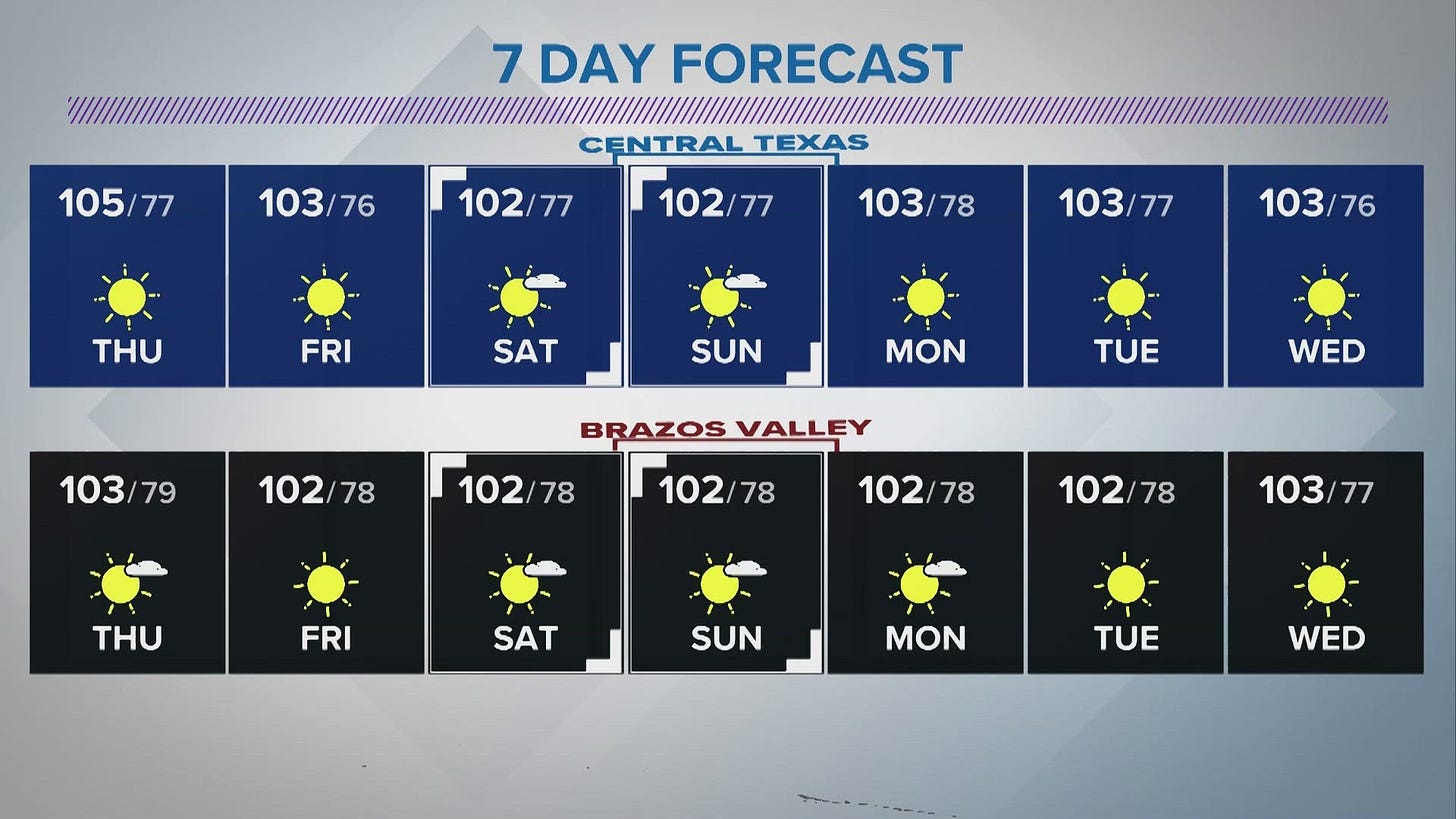How states are handling carbon-induced insurance meltdowns, part two
The Gulf South states of Florida, Louisiana, and Texas
In this post, we review the battles over climate and insurance policy in the Gulf South states of Florida, Louisiana, and Texas. In our previous post for subscribers, we took a look at California, Colorado, and Connecticut.
Florida
Ever since Hurricane Andrew caused a spate of insurance insolvencies in 1992, Florida has attempted to stabilize its insurance market through a state-run reinsurance program called the Catastrophe Fund and an insurer of last resort called Citizens. Today, 10% of Florida homeowners hold a policy through Citizens, but the system faces enormous challenges as the insurance market enters a fossil-fuel-induced “meltdown.”
In 2022, the Florida legislature held two special sessions concerning insurance, and lawmakers considered several bipartisan proposals that sought to shore up the insurance market by lowering the “retention point” at which insurers pay into the Catastrophe Fund, and repealing tax exemptions enjoyed by big businesses. But those options were rejected.
Instead, governor Ron DeSantis (R-Fla.) signed an insurance overhaul that appears to have been drafted in consultation with State Farm and other insurance industry donors. DeSantis’ changes are projected to be very costly for consumers, with provisions making it more difficult for policyholders to sue insurers; shortening the time window that policyholders can file claims after climate disasters; and forcing Citizens’ policyholders to accept premium hikes if a private insurer offers a premium within 20% of Citizens’ rate.
Even as some major insurers retreat from Florida, including Farmers and AAA this week, there are early signs that Florida’s new law has expanded markets for private insurers and forced the number of Citizens’ policyholders down. It remains to be seen whether this actually improves the outlook for Citizens’ finances or for consumers. If the ultimate effect of this law is to shrink Citizens’ insurance pool down to the very riskiest homes, Floridians will likely pick up the tab in a future climate disaster.
DeSantis has used billions in public money to subsidize insurance companies without ensuring consumer savings, all while framing Florida’s insurance market problems as a function of frivolous lawsuits rather than climate change. Additionally, DeSantis has teamed with Chief Financial Officer Jimmy Patronis to apply his “cult of ESG” rhetoric to the insurance market, even though Florida law has long required insurers to provide “favorable insurance rates to owners who protect their properties against hurricanes, floods, and other extreme weather.”1
Patronis’s actions came weeks before Hurricane Ian devastated Florida. Meanwhile, DeSantis’s record on insurance is one of his biggest electoral liabilities.
Louisiana
The insurance market is melting down in Louisiana as well, where dozens of small insurers have failed, increasing demand for the state insurer of last resort, also called Citizens. In January, 12 state lawmakers reportedly met with DeSantis to discuss emulating his industry-friendly insurance reforms. Rather than embracing DeSantis’ reforms (which have also drawn harsh criticism from Donald Trump), Louisiana legislators approved HB 489, which weakened regulators’ power to approve new premium rates by insurers. The bill was opposed by policyholder advocates. Lawmakers also funded a roof fortification program, and approved a bill requiring insurers to offer roof upgrades to policyholders after they have sustained storm damage.
Legislators also introduced legislation to convert the insurance commissioner position from an elected role to an appointee of the governor. Had it passed, this legislation would have effectively canceled Louisiana’s first open insurance commissioner election in nearly 20 years, scheduled to take place this fall. Since the legislation died instead, a still-unsettled field of candidates will compete to succeed retiring incumbent Jim Donelon in the primary election on October 14.
Texas
Like in Florida and Louisiana, Texas’ insurance market is quickly becoming more vulnerable. Nonetheless, Texas House Insurance Chair Tom Oliverson (R-NW Harris County) unveiled legislation to restrict ESG considerations by Texas-based insurance companies. Insurers signaled their intent to straddle the fence on ESG when the industry-funded National Council of Insurance Legislators (NCOIL)2 invited Oliverson to speak on a panel debating sustainable investing at their spring meeting.3
Insurance trades testified in opposition to Oliverson’s legislation during a hearing in March. This kicked off negotiations between industry and legislators, with the National Association of Mutual Insurance Companies (NAMIC), the RAA, and American Property Casualty Insurance Association (APCIA) reportedly working with legislators to get the bill in a place they were more comfortable with.
Ultimately, Oliverson’s legislation became SB 833, a bill that won final approval with mere minutes remaining in the legislative session, increasing the likelihood that restrictions on ESG risk analysis in insurance will spread to additional states next year. Major insurance trades were actively involved in negotiations that clarified that ESG could be utilized as part of “ordinary business practices,” and the bill was stripped of its most profit-threatening provisions.4 Still, the APCIA remained in opposition to the bill even in its final form. After governor Greg Abbott signed SB 833, numerous industry and legal experts expressed concerns that the “law’s vague language could drive insurers from a state or raise the likelihood of insolvency.”
There was no action on insurance during Florida’s 2023 legislative session, but the legislature did pass HB 3, a “sweeping” attack on socially responsible investing. Disclosure forms show State Farm lobbied on the bill, though it is unclear what position they took.
Oliverson is about to assume the presidency of the NCOIL, no doubt giving him more power over the organization’s regular golf outings for state legislators.
At that NCOIL spring meeting meeting, legislators were invited to watch Utah Treasurer Marlo Oaks—who has called responsible investing “Satan’s plan”—give a totally unhinged presentation that modified Coca-Cola’s corporate logo to read “Enjoy Communism.”
Though restraints on risk analysis seem to threaten insurance companies’ basic business model, insurance trades overall seem happy to indulge conspiracy theories about ESG, so long as they are aimed at forestalling climate regulation. See, for example, NCOIL and RAA’s engagement described above, or this Senate press release announcing a letter to FIO, which characterizes FIO’s climate-related data call as part of a “radical environmental agenda.” The letter was signed by 34 Senate Republicans, and by Joe Manchin, who is still a Democrat.







